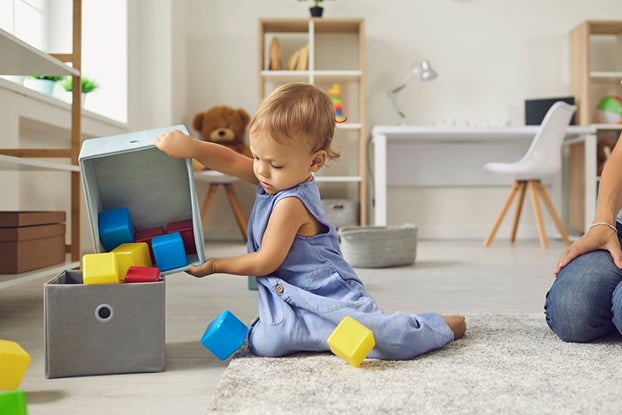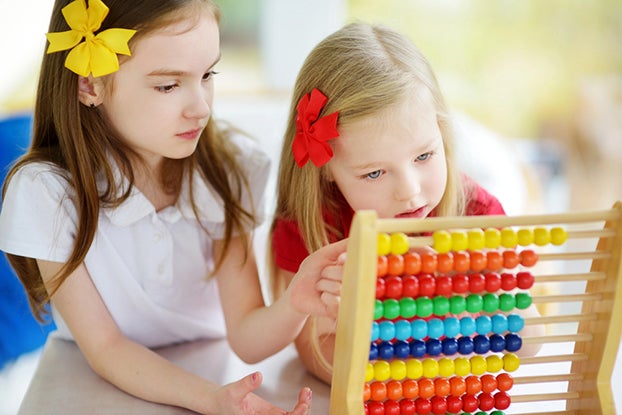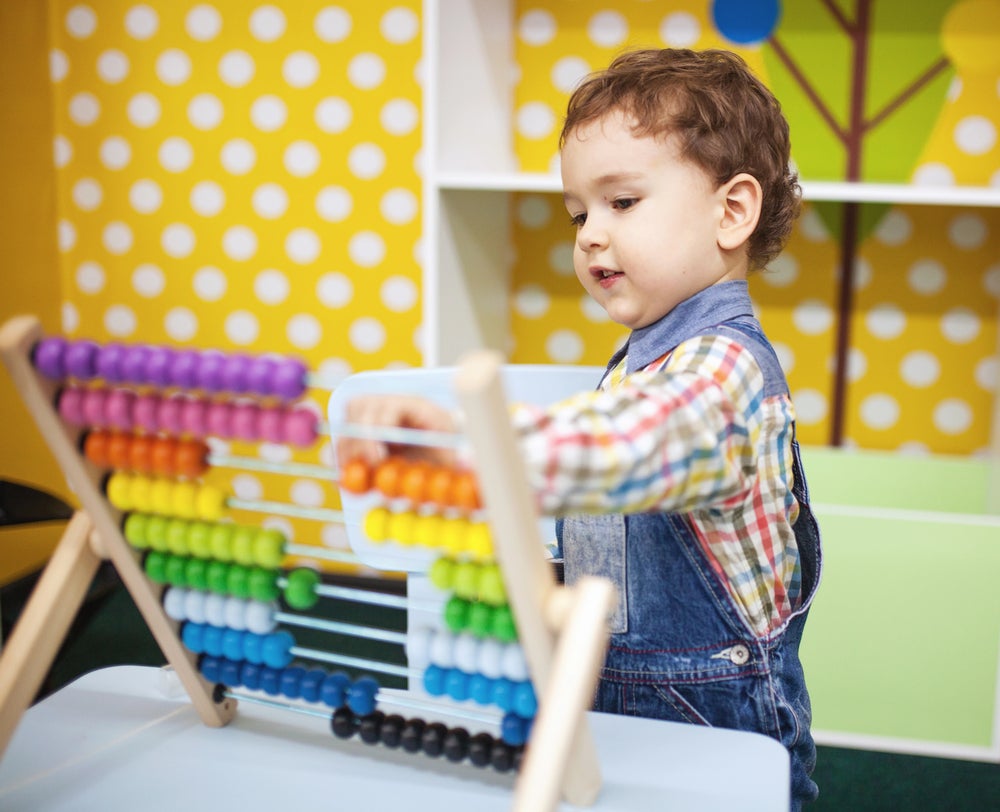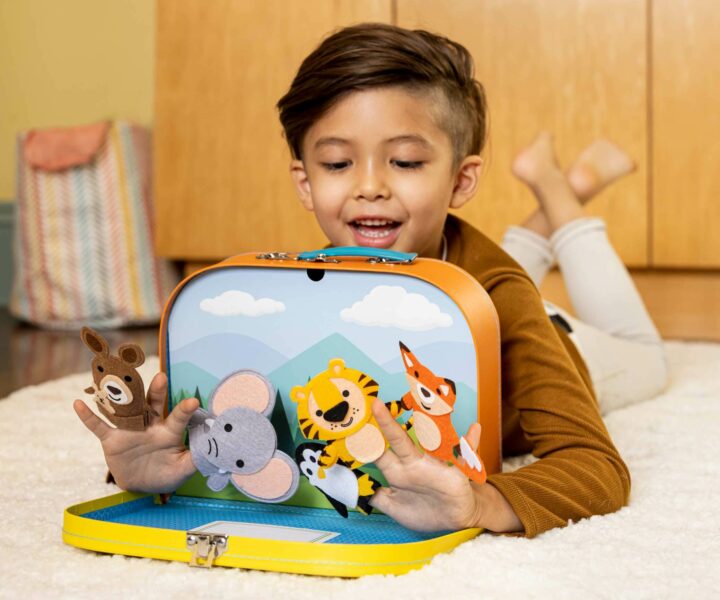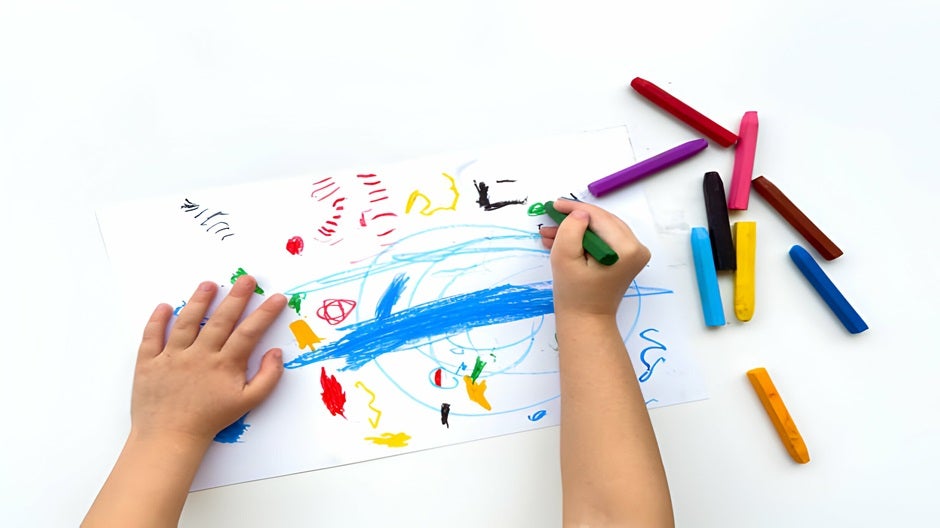If your child is just learning how to read, you may have heard or read about phonological awareness vs. phonemic awareness.
In this article, we discuss phonological awareness vs. phonemic awareness and how it all applies to your child as they learn and grow. We also give you tips on how to build phonological awareness and phonemic awareness at home.
Let’s get started!
Table of Contents
- Phonological Awareness vs. Phonemic Awareness
- How To Build Phonological Awareness vs. Phonemic Awareness
Phonological Awareness vs. Phonemic Awareness

What Is Phonological Awareness?
Phonological awareness is a broad concept that refers to the various skills a child will need and use while learning to read, including:
- Segmenting
- Rhyming
- Blending
- Recognizing alliteration
Segmenting refers to a child’s ability to recognize and isolate syllables and sounds in words.
Rhyming refers to a child’s ability to recognize and use sounds — either within a word or at the end of a word — that correspond to the same sounds in other words.
Blending refers to a child’s ability to combine syllables and sounds together to form words.
Recognizing alliteration refers to a child’s ability to identify the occurrence of the same letter or sound at the beginning of adjacent or closely connected words (e.g., the ‘s’ sound in “she sells seashells”).
Phonological awareness can be thought of as the foundation for your child’s love of reading. It’s important to understand, though, that the various forms of phonological awareness will often develop before your child actually starts reading.
Their ability to segment, rhyme, blend, and recognize alliteration leads directly into the next skill — phonemic awareness — that will allow them to crack the alphabetic code and, with time, start to read.
What Is Phonemic Awareness?
Phonemic awareness is the ability to perceive and use the smallest unit of sound — phonemes — in a spoken and written language.
Children develop this awareness in a variety of ways, many of which are extensions of the concepts inherent in phonological awareness.
Phonemic skills include:
- Identifying the words in a sentence that begin with the same sound
- Separating the first and last sounds of words
- Putting sounds together to create new words
- Separating a word into its component sounds
These skills are important because they help learners match sounds to letters, sound out words they don’t know, and understand that if they change one sound, they change the entire word (e.g., replacing the /r/ phoneme in “rag” with a /b/ phoneme transforms the word into “bag”).
Developing phonemic awareness in this way can give children the skills they need to build their confidence with sounds, words, and, eventually, the sentences that make up the books they’ll be reading for the rest of their lives.
An Example Of Phonological Awareness vs. Phonemic Awareness
In many ways, phonological and phonemic awareness can be compared to playing with Legos.
For example, at a certain age, a child can sort the bricks into piles based on size and color. Later on, they’ll be able to snap the bricks together (regardless of their size and color) to create different shapes and structures.
From a linguistic standpoint, a child with phonological awareness can “sort” words based on variables such as syllables, sounds, and rhymes (to name just a few).
And a child with phonemic awareness can work with individual sounds — phonemes — and understand how to “snap them together” to make new words.
How To Build Phonological Awareness And Phonemic Awareness

Take Advantage Of Technology
Technology can be a great way to help kids develop both phonological awareness and phonemic awareness. With the right app(s) and digital learning content, you can turn screen time into learning time!
Begin’s award-winning HOMER app lets kids explore personalized reading games matched to their age and level so they can develop phonological and phonemic awareness at their own pace.
Just 15 minutes a day can help early learners build their skills with everything from the alphabet to letter-sound correspondence.
Create A Supportive Learning Environment
One of the best ways you can help your child develop phonological and phonemic awareness is to create a supportive and engaging learning environment.
What does that look like?
First and foremost, give them lots of love, attention, and emotional support. Remember: it’s not always easy learning something new and they may get frustrated along the way.
Other ways to create a supportive learning environment include:
- Giving them access to plenty of books (in a variety of reading levels)
- Providing rich sensory experiences
- Talking to them a lot
- Setting aside spaces for different learning activities (e.g., a reading nook)
- Allowing them to exercise age-appropriate independence
- Listening to music
Build A Routine
Make developing your child’s phonological and phonemic awareness part of your daily routine. This can be as simple as talking to them about sounds and words while they’re getting dressed in the morning, at lunch, during travel time, at the dinner table, and before bed at night.
You can add to this routine by setting aside time for them to engage in play-based learning during quiet time or after nap time.
Regardless of the routine you choose for you and your child, do your best to stick with it in order to give your little learner plenty of time to experience the benefits.
Play Fun Games

Here are a few of our favorite games to help your young reader learn about the concept of phonological awareness vs. phonemic awareness.
Games for Phonological Awareness
Another Word That Starts With…
Want something to do on your trip to and from the market? Play Another Word That Starts With… to stimulate your child’s phonological awareness.
The process is simple: Ask your child to tell you another word that starts with the same sound as the word you give them.
So, for example, you could say cat and ask them to tell you another word that starts with the /c/ sound.
You can go back and forth saying words with that same sound or you can challenge them to tell you all the words they know with the /c/ sound.
How Many Syllables?
This is another fun game you can play any time to help your child develop their phonological skills.
Start with words they already know — like mommy, daddy, and banana — and teach them to clap during each syllable.
For example, clap your hands while you say /ma/ /mee/ (two claps) and then ask your child to do the same.
Once they get the hang of it, challenge them with more difficult words.
What Rhymes With…?
Rhymes are an integral part of developing phonological awareness, so take the time to ask your child, “What rhymes with…?”
Start simple — “What rhymes with cat?” — and then, when they feel confident, try some harder words.
Be prepared to hear some nonsense words when playing this game, but keep in mind that it’s not about coming up with “real” words. It’s about building their ability to identify rhyming sounds.
Games for Phonemic Awareness
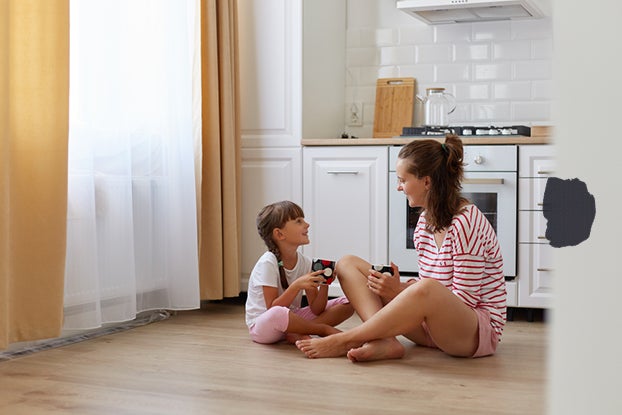
I Spy First Sounds
This game is a great way to develop your child’s phonemic awareness during a road trip or while stuck in traffic.
Look out the window, pick an object, and say, “I spy a log! What’s another word that starts with the /el/ sound?”
You can either ask them to look for something that starts with the same letter (e.g., lake, large dog, or lamp post) or ask them to come up with their own word (they don’t have to see it outside).
Name That Word
To play Name That Word, say a common word but change the first letter to something else. Ask your little one to identify the real word.
For example, you might say “poctor” instead of “doctor” or “niaper” instead of “diaper.”
Shared Sounds
Another great game to help your child develop phonemic awareness is Shared Sounds.
In this game, you say three words that begin (or end) with the same sound and ask your child what sound they share.
For example, you might say, “Leg, lamb, lint” and ask your little one to identify the starting sound (they would say /el/).
Harness the Power of Play-Based Learning
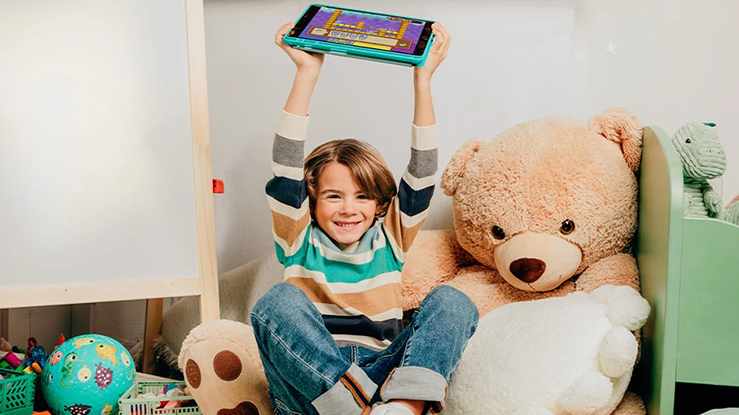
Now that you understand the basics of phonological awareness vs. phonemic awareness, you can harness the power of play-based learning to help build these skills in your young reader.
Begin can help!
Take our age- and stage-matching quiz to discover just the right exercises, games, and activities for your child. And, for more information on what we offer and why families love learning with Begin, visit BeginLearning.com.





